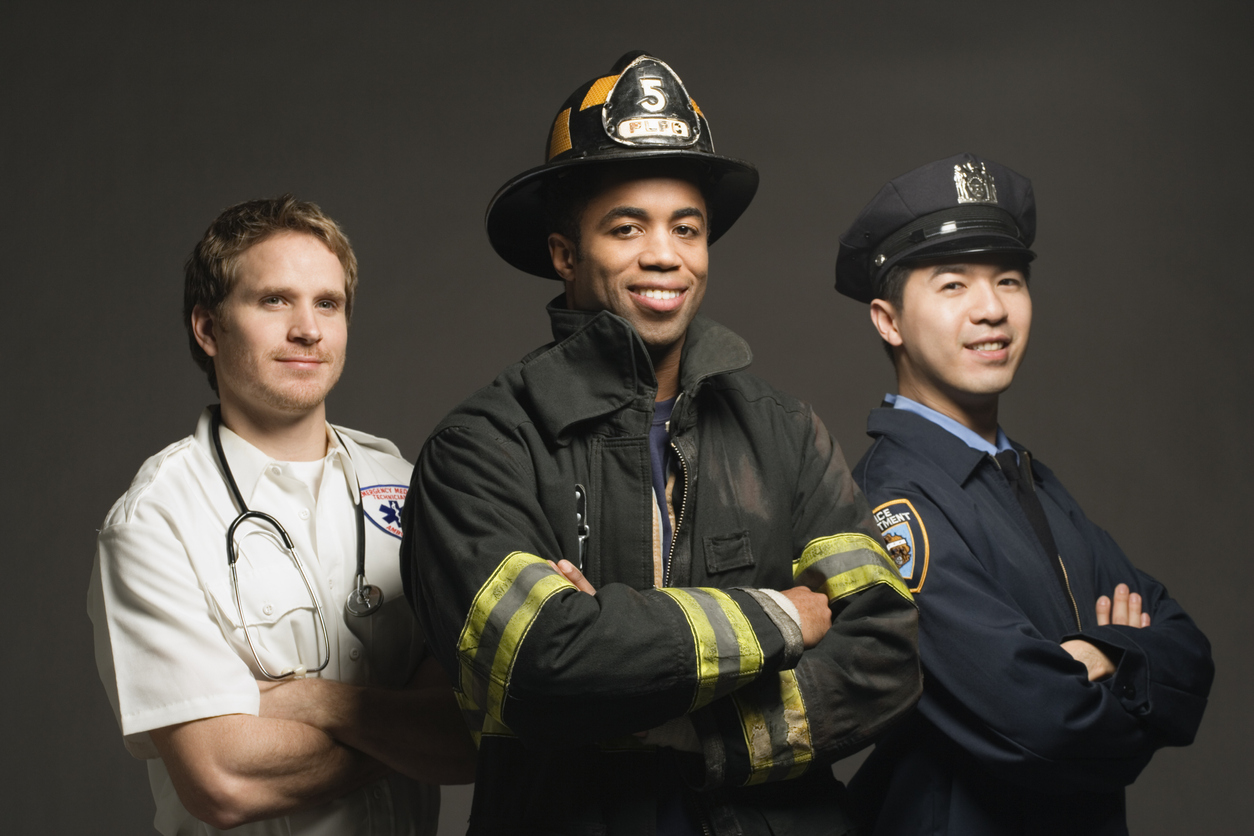9-11 Responders Have Higher Rates of Prostate Cancer

Rates of prostate cancer are higher among first responders who handled operations at New York City’s World Trade Center (WTC) following the terrorist attacks on September 11, 2001. And now, scientists think they might have an explanation.
Their research, published in June 2019 in Molecular Cancer Research, suggests that toxic dust inhaled at the WTC site could be to blame.
The dust contains “carcinogens and tumor-promoting agents,” that could be linked to DNA damage, cell proliferation, and chronic inflammation, the authors wrote.
The researchers compared two groups of prostate tissue samples. The first came from 15 men who had been exposed to WTC dust and developed prostate cancer. The second came from men who had prostate cancer, but had not been exposed to WTC dust.
When comparing the samples, the scientists discovered that the men exposed to WTC dust showed greater degrees of inflammation and genetic change that could contribute to cancer.
Next, the researchers worked with rats to learn more about WTC dust and prostate inflammation. After 30 days of dust exposure, the rats had genetic changes in their prostate tissue related to inflammation.
“We saw a lot of genes expressed, including genes we know are associated with an increased risk of cancer,” study co-author Dr. William Oh of the Icahn School of Medicine at Mount Sinai told Urology Times.
“We saw changes in prostate tissue itself,” Dr. Oh added.
The findings don’t prove that inhaling WTC causes cancer directly, but the study does show a possible link.
“Our results suggest that respiratory exposure to WTC dust can induce inflammatory and immune responses in prostate tissue,” the study authors concluded. They recommended more study to learn more about the risks associated with WTC dust.
Cancer in general has been a concern for people who worked near the World Trade Center after the 9/11 attacks.
In particular, scientists have seen higher rates of thyroid cancer in 9/11 responders.
Resources
HealthDay
Preidt, Robert
“9/11 Dust, First Responders’ Prostate Cancers Linked?”
(June 24, 2019)
https://www.webmd.com/prostate-cancer/news/20190624/911-dust-first-responders_prostate_cancers_linked
Medscape Medical News
Nelson, Roxanne, RN, BSN
“Prostate Cancer Higher in 9/11 Responders: A Look at Why”
(June 25, 2019)
https://www.medscape.com/viewarticle/914843#vp_1
Molecular Cancer Research
Gong, Yixuan, et al.
“Prostate Cancer in World Trade Center Responders Demonstrates Evidence of an Inflammatory Cascade”
(Abstract. Published online: June 20, 2019)
http://mcr.aacrjournals.org/content/early/2019/06/18/1541-7786.MCR-19-0115
Urology Times
Gagnon, Louise
“Prostate cancer in 9/11 responders: Study explores mechanism of action”
(July 1, 2019)
https://www.urologytimes.com/prostate-cancer/prostate-cancer-911-responders-study-explores-mechanism-action
You may also be interested in...
Other Popular Articles

What Is the Average Penis Size?
If you have ever wondered how your penis compares to others in terms of size, you are not alone. Many men are curious to know how their penises stack up compared to the average. Unfortunately, general curiosity can sometimes give way to full-on obsession and anxiety about penis size. This can be an unhealthy and often unnecessary fixation, especially because most men who think their penises are too small have perfectly normal-sized penises.

What Is Jelqing, and Does It Actually Work?
The term “jelqing” refers to a set of penis stretching exercises that some believe can make the penis bigger. Although the practice has gained attention and popularity in blogs and internet forums in recent years, there is no scientific evidence that it is an effective way to permanently increase the size of one’s penis. In fact, in some cases, jelqing may actually cause damage to the penis, so it is a good idea to get all the facts before setting off to try it.

What Is Sensate Focus and How Does It Work?
Sensate focus is a technique used to improve intimacy and communication between partners around sex, reduce sexual performance anxiety, and shift away from ingrained, goal-oriented sexual patterns that may not be serving a couple.

Can Sex Reduce Menstrual Cramps?
The SMSNA periodically receives and publishes ‘guest editorials.’ The current article was submitted by Mia Barnes, a freelance writer and researcher who specializes in women's health, wellness, and healthy living. She is the Founder and Editor-in-Chief of Body+Mind Magazine.
Having sex while you experience menstrual cramps is healthy and can provide significant benefits. While it might not be the first activity that comes to mind when your PMS or period cramping begins, many people enjoy sex to reduce menstrual cramps, experience increased pleasure and benefit from other advantages. Learn more about having sex while menstrual cramps are happening and how it can help your body.

How Long Does It Take the Average Man to Ejaculate?
On average, it takes a man between 5 to 7 minutes to orgasm and ejaculate during sexual intercourse.

Can Sex Throw off Your Vaginal pH Balance?
The SMSNA periodically receives and publishes ‘guest editorials.’ The current article was submitted by Mia Barnes, a freelance writer and researcher who specializes in women's health, wellness, and healthy living. She is the Founder and Editor-in-Chief of Body+Mind Magazine.
Your vagina is a pretty powerful organ. It is a pathway for menstrual blood and babies. It also is a main player in sexual intercourse. You might hear about your vagina’s pH and worry that yours is at risk. Here’s what to know about vaginal pH, including the impacts sex could have.
You are prohibited from using or uploading content you accessed through this website into external applications, bots, software, or websites, including those using artificial intelligence technologies and infrastructure, including deep learning, machine learning and large language models and generative AI.

